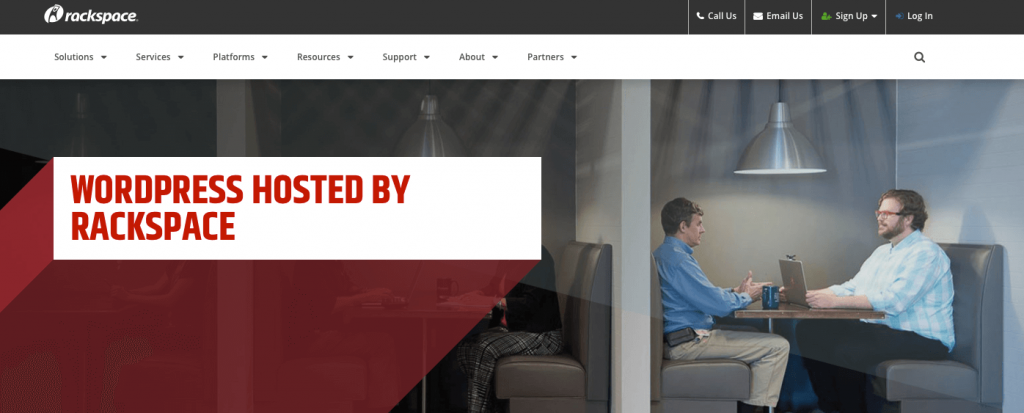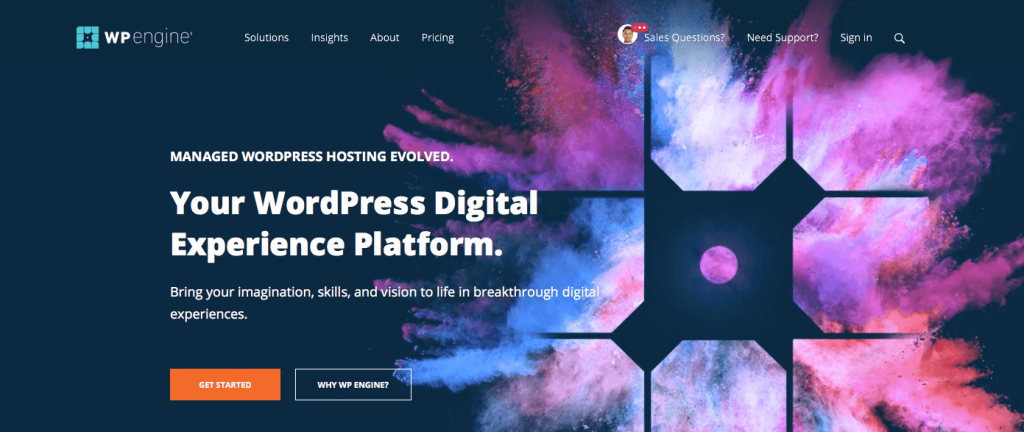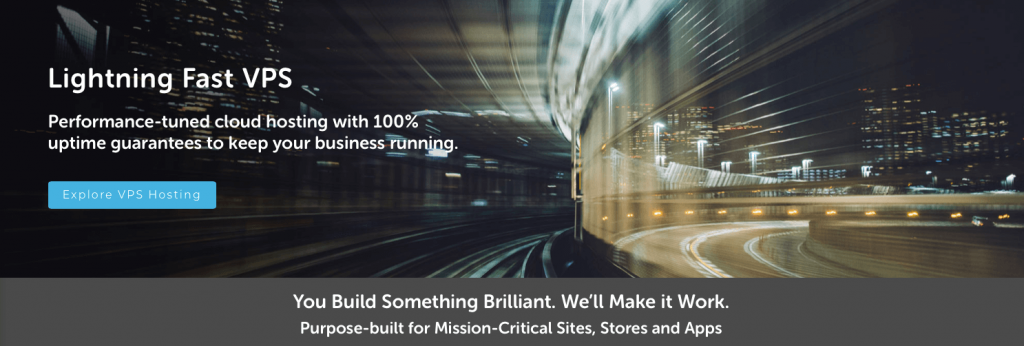Most site owners want more traffic. More visitors means more prospects and customers (or donors or members).
Yet high traffic sites present unique challenges, for both site owners and hosting providers. You need your site to remain stable and highly responsive, even during peak traffic times.
The solution to this challenge is complex and multi-pronged, of course. In addition to a well-coded site, you need optimized and compressed image files, a streamlined design, and a cogent architecture to your pages.
However, the bottom line is rather simple: Nothing is more important for a high-traffic site, or a site anticipating traffic spikes than the right hosting solution. Failure to build your site on a sturdy foundation, so to speak, can result in serious problems with slow-loading pages, nonfunctional interactive elements, and even downtime.
What does that mean, exactly?
What Kinds of Servers Are Best for High-Traffic Sites?
Shared hosting plans are undoubtedly a blessing for new site owners, who are often saddled with a shoestring budget.
However, hosting providers simply don’t have the bandwidth for high traffic sites on these shared plans. You might get penalized if your site routinely exceeds your permitted limits for server capacity.
Cloud hosting is one possible solution. It’s increasingly popular and has significantly altered the hosting landscape.
A cloud-based plan also offers easy scalability. Because a site’s files are hosted across a network of servers, hosting companies can offer flexible “pay for what you use” pricing models.
Another option is VPS hosting. While VPS plans aren’t as cheap as shared hosting plans tend to be, they aren’t as expensive as dedicated servers. What’s more, VPS hosting gives the owner of a busy site invaluable reassurance.
Dedicated servers are the top-shelf option for most business sites. They’re also usually the most expensive options around. Dedicated hosting helps optimize your sites to be as fast as possible, which is essential when it comes to sites with heavy traffic. Even a lag of a single second can chase your customers away.
Of course, there are disadvantages. Both VPS and dedicated hosting both require more time for setup, configuration, and maintenance.
Fortunately, you can avoid that by selecting a managed hosting package. Managed hosting removes most general server administration tasks from your plate and lets your hosting company take care of that for you on an ongoing basis.
What Should You Look for in High-Traffic Site Hosting?
Most hosting companies these days offer many features that will help you manage and grow a high-traffic site.
Chief among these features is easy access to a content delivery network. CDNs are one of the primary methods used by high traffic sites to stay up and running.
In a traditional hosting plan, you have one server, in a single location. All your files reside on that server. This network configuration limits how quickly the page files can reach visitors who are physically far away.
A CDN caches your site’s static files and mirrors them across servers in various geographic locations, then serves up the site from the location that’s physically closest to the visitor. This reduces page load time and helps keep your site running, even during traffic spikes.
Look for a host that offers regular backups of your site files. That way, if your site crashes, you can get it back up in a stable configuration as quickly as possible.
Most hosting companies will offer excellent uptime, but even a slight variation can end up meaning a huge impact. Servers crash for any number of reasons but quality hosting companies anticipate problems and take several steps to resolve those issues ahead of time. This leads to more stable site performance and reduced downtime, to avoid damaging your brand’s reputation and losing customers.
Make sure your hosting provider is serious about security. That means not only security of your files, with accounts protected by two-factor authorization and free SSL certificates, but also the physical security of its datacenters.
Solid infrastructure is key to high traffic sites. A hosting company that uses state-of-the-art technologies tends to offer better access to resources such as RAM and bandwidth.
Last, but far from least, look for plans that offer scalability. A scalable hosting plan allows you to upgrade for temporary spikes as well as steady growth.
Best Hosting Companies for High Traffic Sites
Keeping in mind the above features, which hosting companies deliver the best combination of function and value? The following providers are all well suited to help you meet and overcome the specific challenges that high-traffic sites face.
GoDaddy

GoDaddy’s business hosting plans offer owners the benefits of a souped-up Virtual Private Server but without the technical complexity of some VPS plans. Additionally, you escape the disadvantages of shared hosting, which always means shared resources and a weaker approach to site optimization.
With ample speed-boosting and performance stabilizing technologies included (such as an installed CDN), the GoDaddy business hosting servers help keep your high-traffic site running smoothly and loading quickly, even during times of serious stress on your site’s resources.
Kinsta

Kinsta offers fully managed WordPress hosting on the Google Cloud Platform. Kinsta’s business plans provide for unlimited page views. This helps protect you against your hosting company suddenly putting on the brakes during unexpected traffic spikes.
Kinsta will also provide regular monitoring of your site for protection against malicious hacks, DDoS attacks, and other bad acts. It’ll also give you free assistance in migrating your existing site to the new server.
InMotion

InMotion is a popular hosting provider that can also handle large volume sites. The company offers cloud, VPS, and dedicated plans, so you can pick the right configuration to suit your site’s needs as well as your budget.
New customers get a free SSL certificate, assistance in transferring existing sites to the InMotion servers, and unlimited databases, which is a nice bonus for anyone running, or thinking about running, multiple sites.
Rackspace

One of the biggest hosting companies offering cloud-based hosting for WordPress sites, Rackspace provides both flexibility and scalability to handle sudden spikes in traffic.
With around the clock customer support and site monitoring, as well as load balancing and caching, Rackspace is a solid choice that can grow with your brand.
WP Engine

WP Engine is an award-winning hosting company that successfully integrates scalable hardware and architecture with responsive caching and real-time monitoring for DDoS and other kinds of attacks. This combination of features helps your high-traffic site stay up and running even in moments of significant server stress.
WP Engine makes managing your site a breeze with automated updates, simple site migration, and a truly innovative feature: a staging area where you can test out changes to your site before you make them. Perfect your CSS changes and new plugins before you add them to your live site.
Liquid Web

Liquid Web provides site-wide caching and image compression tools to help speed up your site for your visitors, which improves performance in times of high traffic numbers.
The company also provides native tools that make managing multiple WordPress sites easier, including cross-domain one-click updates. Unlimited page views and dynamic load balancing help keep your site stable and performing optimally as you continue to grow your brand.
Wrapping Up
Protecting your high-traffic website with the right kind of hosting helps ensure your site’s stability and protect your brand’s reputation. If you’re otherwise happy with your existing hosting company, it’s a good idea to start there first.
If you do decide to explore your options a bit, make sure to get independent recommendations and reviews before settling on a decision.

Leave a Reply